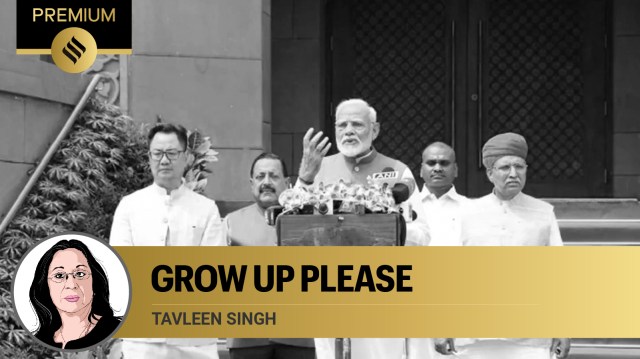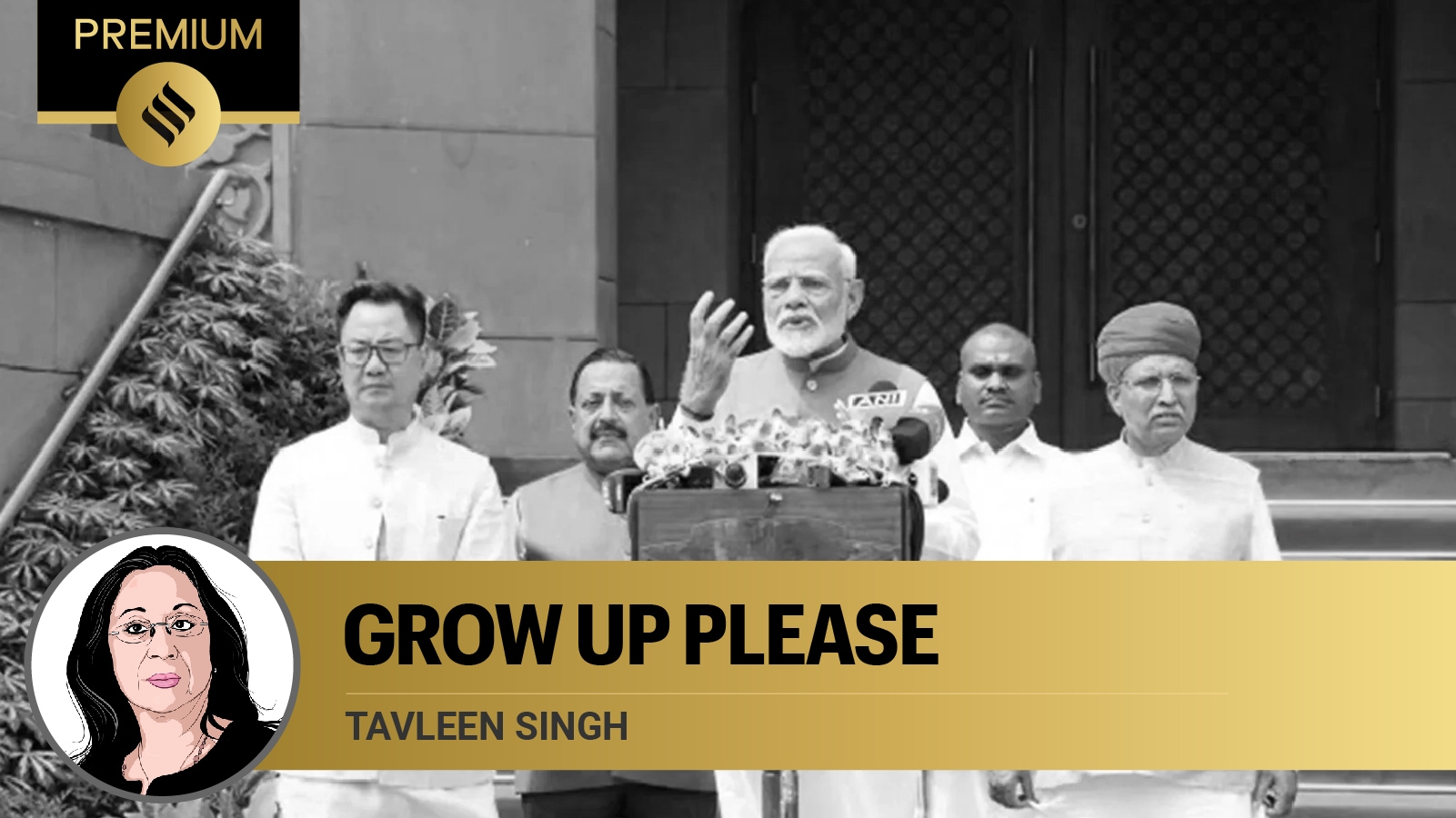
Indian democracy is full of surprises. The exit polls were a surprise. Then the results were a nasty surprise for those who did the polls. There it should have ended. But now there is yet another surprise. It seems as if neither side has understood the mandate. The Prime Minister continues to behave as if he won a full majority. And the newly elected leader of the Lok Sabha behaves as if he has already become prime minister. The message that Indian voters sent was that they wanted neither side to become arrogant or entitled. Narendra Modi and Rahul Gandhi have both exhibited these traits in the past but there is no point in dwelling on history. It is present realities that are a consequence of not respecting the mandate that we should worry about.
Last week the Prime Minister made two speeches that sounded ominous. The first was on the first day of the Budget session. He stood on the steps of Parliament House with a cohort of his partymen and in somber tones declared that the ‘voice of the prime minister was throttled for more than two hours’ and that this was undemocratic. It took me a few moments to realise that what he referred to was the heckling that came from the opposition benches when he made his unending speech the week before. The heckling was rude and rowdy but cannot be described as ‘throttling his voice’.
The second speech was on Kargil Day when he went to commemorate those who gave their lives in that war forced on us by Pakistan’s military rulers twenty-five years ago. In this second speech he charged the Congress Party with failing the armed forces, for decades, by spending more time making money from arms deals than on providing our troops with vital equipment. Our soldiers did not have bullet-proof jackets, he said. It was not clear which war he was speaking of but if it was Kargil, then he needs to remember that the prime minister then was from his own party. More importantly, Modi needs to remember that he was not given a full mandate this time. And that there now is for the first time in ten years a Leader of the Opposition in the Lok Sabha.
There are unlearned lessons on the other side as well. Since the opposition parties have done well enough to form a solid block in the Lok Sabha, it is time for them to realise that it should be inside the house that they raise their voice. Not outside it as they did before with placards and slogans and protests under statues. So far there is no indication that they have understood that they are strong enough to not need to spend more time in the gardens of Parliament House than inside.
It is also possible to make opposition voices heard without heckling and taunts. It is because this happened so often in the past that the prime minister has been able to say more than once that it is the opposition that has made Parliament dysfunctional because they have nothing to say. Not true. But also true that there has been too much yelling and screaming and too many walkouts. Why not try a new strategy? Why not try keeping the government in check by staying in Parliament? In Modi’s second term, too many laws were passed without debate and some of these laws were flawed.
This must not happen now. Rahul Gandhi made some important points in his first speech as Leader of the Opposition. One of them was on the Agniveer issue. From my own conversations with military men, I have gleaned that this recruitment of short-term soldiers is beset with problems. This could be the reason why in his Kargil speech last week Modi spent much of it explaining why the Agnipath programme was good for the army.
If opposition leaders believe it is not good, then it is time that it was discussed inside the Lok Sabha. Instead, too many opposition leaders are threatening to end the whole scheme as soon as they come to power. This is something they believe will happen in the next few months and not five years from now. If that happens, a new story begins. But for the moment, the only thing gained by banging on about it is that it creates uncertainty that is guaranteed to make foreign investors flee.
Instead of wasting time denigrating each other, it is time for both the Prime Minister and the Leader of the Opposition to sit down for a friendly chat to decide what is needed to allow Parliament to function. One good first step would be to order party spokesmen on TV to express their views without screaming abuse at each other. As someone obliged to listen to these TV ‘debates’, I have noticed that the spokespersons take their lead directly from what their leaders say. They listen carefully to what is said by Narendra Modi and Rahul Gandhi and then weaponise their words on national television.
There is almost no democratic country in which so much venom is spat at each other by the TV spokespersons of political parties. If it happens so much in our dear Bharat Mata, it is only because our political culture and democratic norms need to change for us to be seen as a mature democracy.



